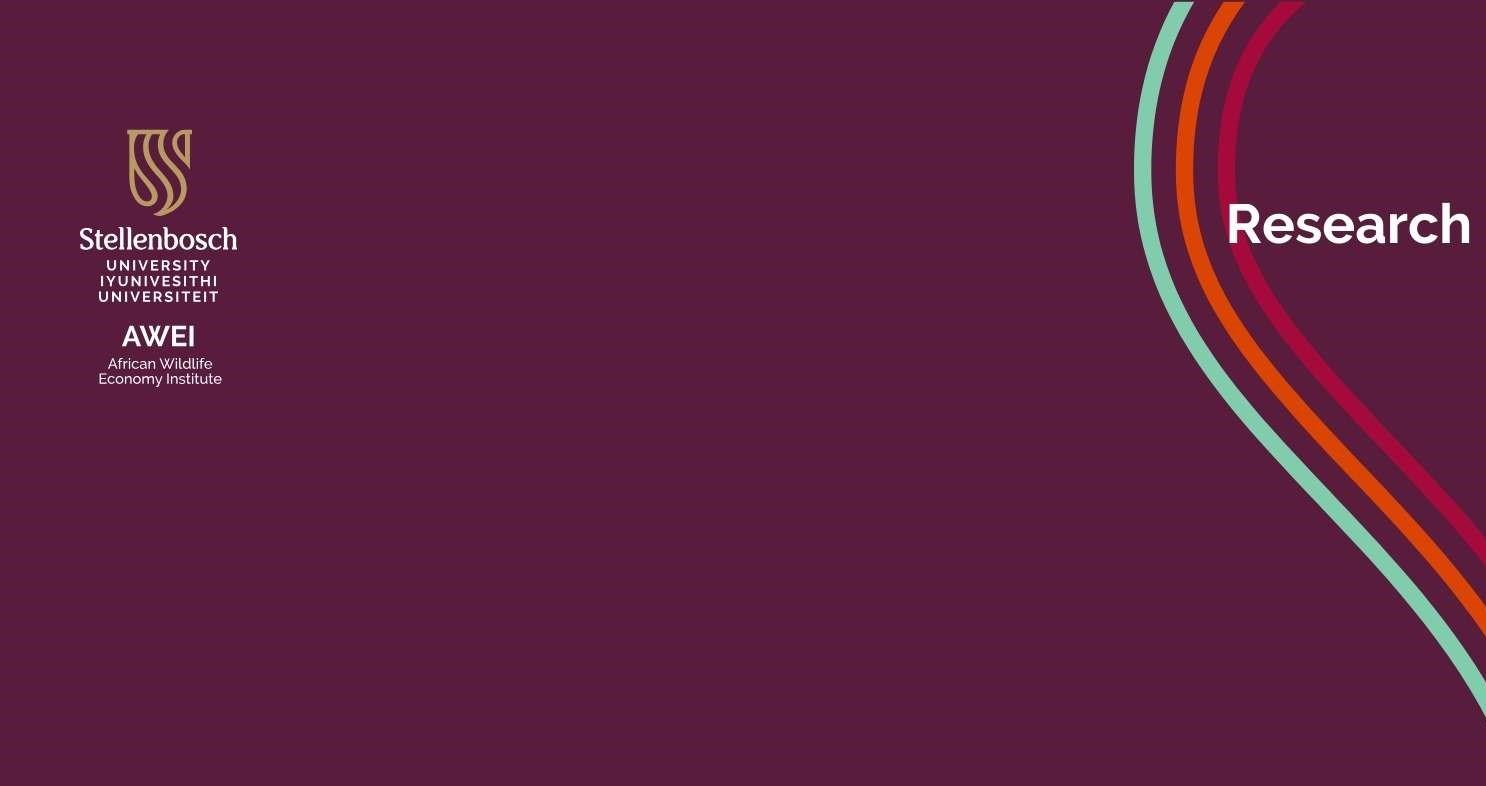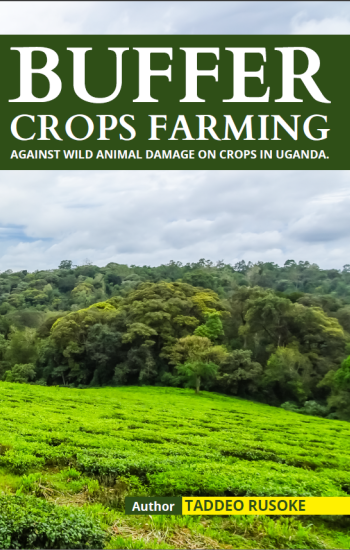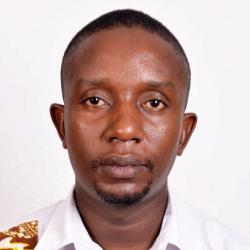

Buffer Crops Farming against Wild Animal Damage on Crops in Uganda
The book provides a captivating narrative based on a farmer’s lived experience and offers an in-depth analysis alongside practical solutions to mitigate crop damage caused by wildlife. Dr Rusoke’s book unveils the remarkable story of a farmer who has battled against the destructive impact of wild animals on agricultural livelihoods. With first-hand accounts and vivid descriptions, readers gain a deep understanding of the daily struggles, losses, and frustrations endured by farmers residing near Protected Areas. Driven by an unwavering commitment to finding sustainable solutions, Dr Rusoke embarked on an investigative journey, delving into the complex dynamics of human-wildlife conflict. Through meticulous research and comprehensive analysis, he uncovers the ecological, socio-economic, and cultural factors that contribute to this issue, presenting readers with a holistic view of the challenges faced by farmers in these regions. At the core of Dr. Rusoke’s work lies the Buffer Crop Farmers Model, a practical and innovative solution to protect crops from wild animal damage. This model, based on ecological principles and agricultural innovation, emphasizes the strategic planting of specific crops or vegetation around farmlands to create a buffer zone. By selecting crops that are less attractive to wildlife or implementing physical barriers, farmers can safeguard their crops while minimizing harm to wildlife populations. “Buffer Crops Farming against Wild Animal Damage on Crops in Uganda” provides a wealth of guidance and insights on implementing the Buffer Crop Farmers Model. Dr Rusoke offers step-by-step instructions, best practices, and real-life case studies that showcase the success and positive impact of this approach. The book serves as a valuable resource for researchers, policymakers, and practitioners in the conservation fraternity, offering practical solutions that can be replicated in similar contexts worldwide. For those eager to explore the ideas and strategies presented in the book, Dr Rusoke welcomes inquiries and encourages further engagement. Interested individuals can reach out to the author directly at +256782116672 or via email at taddeorusoke@gmail.com.
“Buffer Crops Farming against Wild Animal Damage on Crops in Uganda” is not merely a book; it is a call to action. Dr. Rusoke’s work inspires a harmonious coexistence between farmers and wildlife, nurturing a balance between human needs and environmental preservation. By sharing his expertise and experiences, he paves the way for a future where sustainable agriculture and wildlife conservation go hand in hand. https://nkumbauniversity.ac.ug/innovative-book-offers-practical-solutions-to-protect-crops-from-wild-animal-damage-in-uganda/
Rusoke, Taddeo. (2023). Buffer Crops Farming against Wild Animal Damage on Crops in Uganda.
-

Dr Taddeo Rusoke
Research Associate
We support the free flow of information. Please share:
More content
-

What Foot and Mouth Disease-free means for South Africa’s game meat trade
Ms Lydia Daring Bhebe…Explore the latest developments in South African provinces achieving and maintaining Foot and Mouth Disease (FMD) free status…
Articles -

The world wildlife trade regulator is 50 – here’s what has worked and what needs to change
Daniel Challender…Most countries implement Cites, the Convention on International Trade in Endangered Species of Wild Fauna and Flora as…Articles -

Enabling Sustainable Wildlife Trade
Prof Francis VorhiesEnabling sustainable wildlife trade is a key policy measure for growing Africa's wildlife economy. In this respect, CITES…
Articles -

Has CITES become too complicated to be effective?
Prof Francis VorhiesGovernments agreed to the text of CITES in the 1970s, which is quite straightforward. However, the agreement’s implementation…
Articles -

From poachers to providers: Can Africa's wild meat market save wildlife?
Dr Wiseman NdlovuHave you ever considered how wild meat could be more than just a cultural staple but also a…
Articles -

As a fellow of the African Wildlife Economy Institute (AWEI), I am excited to attend the upcoming 3rd…
Articles -

A theory of change to improve conservation outcomes through CITES
Dr Michael 't Sas-Rolfes…Here we articulate the implied theory of change (ToC) underpinning the design and operation of CITES (Convention on...
2025Research -

Wild Meat Value Chain Integration Systems: Opportunities for Value Chain Formalisation and Scaling in Africa
Dr Wiseman Ndlovu…Establishing a legal, safe and sustainable wild meat sector promises to potentially reduce demand for illegally sourced meat...
2025Research -

AWEI's 2024 Wildlife Economy Dialogue Series
Ms Emily TaylorRediscover 2024: A year of insight and inspiration
In 2024, AWEI proudly hosted three ground-breaking dialogue series in…
Articles
Get updates by email
Through impactful research, stakeholder engagement, and professional development, AWEI is supporting the wildlife economy across Africa. Please subscribe for occasional updates on our work and forthcoming events.
Sign up for a quarterly dose of AWEI insights
In a complex and changing world, AWEI generates strategic ideas, conducts independent analysis on wildlife economies, and collaborates with global scholar-practitioners to provide training and expertise for biodiversity conservation, climate resilience, and inclusive economic opportunities in Africa.
